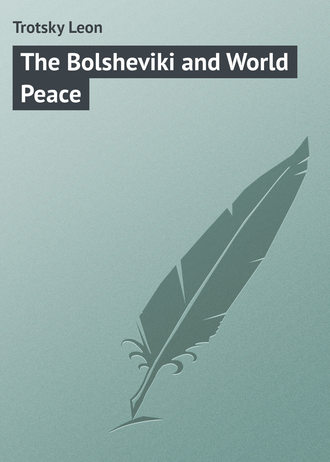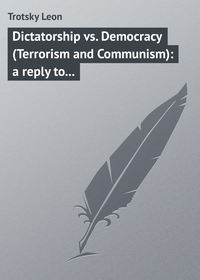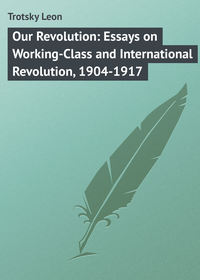 полная версия
полная версияThe Bolsheviki and World Peace
1
It is noteworthy that these opportunistic Austrian and German Socialists are now writhing with moral indignation over the "treacherous assassination at Sarajevo." And yet they always sympathized with the Russian terrorists more than we, the Russian Social Democrats, did, who are opposed on principle to the terroristic method. Lost in the mist of chauvinism, they can no longer see that the unfortunate Servian terrorist, Gavrilo Prinzip, represents precisely the same national principle as the German terrorist, Sand. Perhaps they will even ask us to transfer our sympathies from Sand to Kotzebue? Or perhaps these eunuchs will advise the Swiss to overthrow the monuments erected to the assassin Tell and replace them with monuments to the Austrian governor, Gessler, one of the spiritual forerunners of the murdered archduke?
2
To appreciate fully this action of the Servian Socialists we must bear in mind the political situation by which they were confronted. A group of Servian conspirators had murdered a member of the Hapsburg family, the mainstay of Austro-Hungarian clericalism, militarism, and imperialism. Using this as a welcome pretext, the military party in Vienna sent an ultimatum to Servia, which, for sheer audacity, has scarcely ever been paralleled in diplomatic history. In reply, the Servian government made extraordinary concessions, and suggested that the solution of the question in dispute be turned over to the Hague tribunal. Thereupon Austria declared war on Servia. If the idea of a "war of defense" has any meaning at all, it certainly applied to Servia in this instance. Nevertheless, our friends, Ljaptchevitch and Katzlerovitch, unshaken in their conviction of the course of action that they as Socialists must pursue, refused the government a vote of confidence. The writer was in Servia at the beginning of the War. In the Skuptchina, in an atmosphere of indescribable national enthusiasm, a vote was taken on the war credits. The voting was by roll-call. Two hundred members had all answered "Yes." Then in a moment of deathlike silence came the voice of the Socialist Ljaptchevitch-"No." Every one felt the moral force of this protest, and the scene has remained indelibly impressed upon my memory.
3
"How characteristically Prussian," wrote Marx to Engels, "to declare that no man may defend his 'fatherland' except in uniform!"
4
"Russian diplomacy is interested only in such wars," wrote Engels in 1890, "as force her allies to bear the chief burden of raising troops and suffering invasion, and leave to the Russian troops only the work of reserves. Czarism makes war on its own account only on decidedly weaker nations, such as Sweden, Turkey and Persia." Austria-Hungary must now be placed in the same class as Turkey and Persia.
5
A sentimental correspondent of the Vorwärts writes that he was looking for Belgian comrades in the Maison du Peuple and found a German army hospital there. And what did the Vorwärts correspondent want of his Belgian comrades? "To win them to the cause of the German people-just when Brussels itself had been won 'for the cause of the German people!'"



